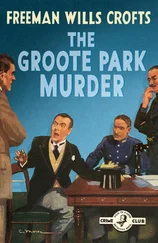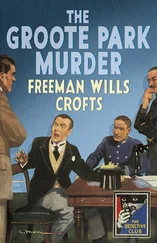Much as Mary might have hoped for an opportunity to see Edmund the following day, Henry was skillful enough to dissuade her from it, arguing that, even if she had no care for propriety, she could not hope to see him alone in a house full of servants, and when he was under close surveillance by one of Maddox’s underlings. In her brother’s view, there was nothing for it but to await the day of the funerals, when the White House domestics would be absent at church, and Henry might be of service in distracting Stornaway for a few moments while she slipped into the house. They had talked, and they had been silent; he had reasoned, she had resisted; but she had ended by acquiescing.
She spent, as a result, a miserable and restless day, unable to work, unable to read, and reluctant even to leave the house. Henry was absent in Northampton on business with Sir Thomas’s attorney, and Mrs Grant, perfectly unaware of what was passing in her sister’s mind, encouraged her to take advantage of the dry weather and walk up to the Park.
"Even if her ladyship is not well enough to see you, you might sit for an hour with Miss Bertram, or see the corpse of poor Miss Julia, and tell me how it appears."
Mary could barely repress a shudder; she had never told her sister that it was she who had prepared Fanny Price’s disfigured body for the grave, and she could not face such another experience, not even to pay a final farewell to her sweet dead friend.
By late afternoon the weather had changed; the clouds rolled in, and the sky grew dark. Mary sat at the window watching the first dismal drops of rain, wondering if Edmund might also be looking out, as she was, and whether his thoughts were drawn to her, as hers were, so irresistibly, to him. She could not bear even to contemplate how she must now appear in his eyes: the cold-blooded murderess of the woman he was to have married, driven to an unforgiveable transgression by the basest motives of jealousy and resentment, and too craven to admit to what she had done. Any esteem, any respect, he might once have accorded her must now be utterly done away, and yet he loved her still. He must do so, or why would he be prepared to forfeit his own life in place of hers? To face the gallows without flinching, for love of her. She could not bear to contemplate the pain he must be suffering, and was racked the more from the knowledge that it was in her power to relieve it, could she but find five minutes to speak with him, and tell him the truth.
But that all-satisfying moment would have to wait. She had first to endure an evening with the Grants, without even her brother’s company to support her. Her mind was abstracted and dissatisfied; she could hardly eat anything at dinner, and could only with difficulty govern her vexation at the tediousness of her brother-in-law, who elected to prepare them for the morrow’s solemnities by filling the interval before bed-time with a peroration from Bishop Taylor’s Holy Living and Dying , concerning "the Contingencies and Treatings of our departed friends after death, in order to their Burial", which he delivered in a tone of the most monotonous pomposity. The good Bishop had provided numerous remedies against impatience, but none that were of any efficacy in stilling Mary’s eagerness, or calming her longing to be some where else altogether.
It continued to rain all night, and Charles Maddox was woken the following morning by the sound of the wind in the trees outside his window. He no longer had such a view as he had enjoyed at the Park, but the steward’s wife was hospitable, and the food only a little inferior to that served in the servants’ hall. By the time he had breakfasted, and spoken at some length to Fraser, who had returned to Mansfield the night before, the funeral bell was already tolling from the tower of Mansfield church. He had dressed in his black coat, and now added the arm-band of crape, which was always carried with him in his luggage, and had seen much service over the years, before making his way to the Park to join the rest of the household now assembling in the hall. He did not put himself forward to pay his respects; indeed, it suited his purpose to remain silent and unattended to, and observe how the family conducted itself at such a pass. Sir Thomas, he saw, looked thin and haggard, the marks of his recent illness given stronger emphasis by his mourning clothes, and his son stood at his side, ready to offer his arm should that become necessary. Maddox had not thought to see the ladies of the house; in his experience, fashionable London ladies were never expected to attend family obsequies, but he suspected that the absence of Lady Bertram and her daughter might be attributed more to genuine feeling, than the mere observance of the proper etiquette. A few moments later a deeper and almost unnatural silence began to take possession of the room, and as the whispers died away, Maddox heard the sounds of the approaching horses.
The carriages came to a halt before the open door, the two hearses drawn by plumed horses, the first curtained in black, the second in maiden white. Maddox saw, with no little consternation, that the cortège was accompanied by Henry Crawford on horseback. The master of the house then took his place in the family carriage, and a few moments later the solemn procession began to make its slow way down the sweep. By the time they reached the church, the long line of servants following on foot had been considerably augmented by tenants from the Mansfield estate, and the carriages of the best local families, their blinds pulled down.
As the Mansfield footmen carried the two coffins into the nave, and Maddox took his own seat near the back of the church, he saw that Mrs Grant and her sister were already seated in the parsonage pew. He found it hard to believe that it was only a few days since he had last seen Mary Crawford, so changed was her appearance. Her face was drawn, and there was a hollowness about her eyes that did not augur well. He wondered, for a moment only, whether he might not be following the wrong course, but told himself that he was allowing his partiality for this woman to impede his professional judgment. Knowing what he did of Dr Grant, he could not hope for brief eulogia on the deceased, but all the same, he found himself unexpectedly affected by the signs of genuine grief that attended the clergyman’s account of Julia Bertram’s short life; her father and brother were visibly distressed, and her young maid, Polly Evans, wept inconsolably in Mrs Baddeley’s motherly arms.
When Dr Grant turned his attention to the late Mrs Crawford, Maddox was aware of an immediate and decided change in the mood in the church; there was little evidence of sorrow now, whether real or feigned, and the few murmurings that came to Maddox’s ears were expressions of sympathy for the plight of Mr Norris, a fact which he found both surprising and instructive. Nor did Maddox envy the clergyman his task: it was clear that, were it any other young woman but Sir Thomas’s niece, Dr Grant would have deemed it his Christian duty to present her fate as an awful warning to the congregation, and a caution against the evils of lust and avarice, but he was painfully constrained by the presence of his patron, and the demands of common politeness. It demanded all the ingenuity of a casuist to steer a safe course through such dangerous waters; to bury Mrs Crawford without praising her, and give an account of her life without referring to the husband who had seduced her, or the cousin who would be charged on the morrow with having done her to death. The husband, at least, had the good grace to appear abashed, and while Henry Crawford held his head high in the family pew, there was a spot of colour on each cheek that spoke either of a considerable suppressed anger, or an inner regret rising to wretchedness; even Maddox, with all his aptitude for physiognomy, could not determine which. It was of a piece with what he had come to know of the man, and he laid up this latest observation alongside the new intelligence Fraser had brought with him from Enfield. Henry Crawford was a conundrum that appeared to grow more complex the more closely he examined it; he had yet to decide if the solution to that conundrum was a matter of intellectual curiosity, or something more significant, but he hoped he might not have to wait very much longer to obtain his answer.
Читать дальше












